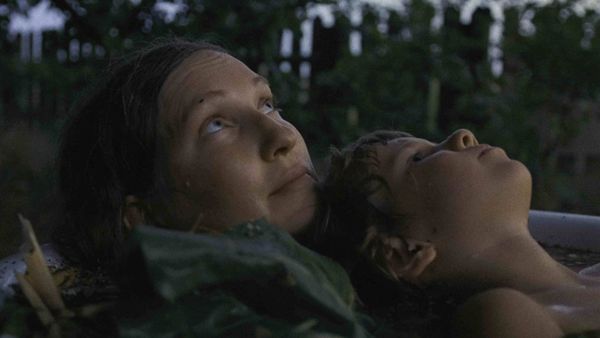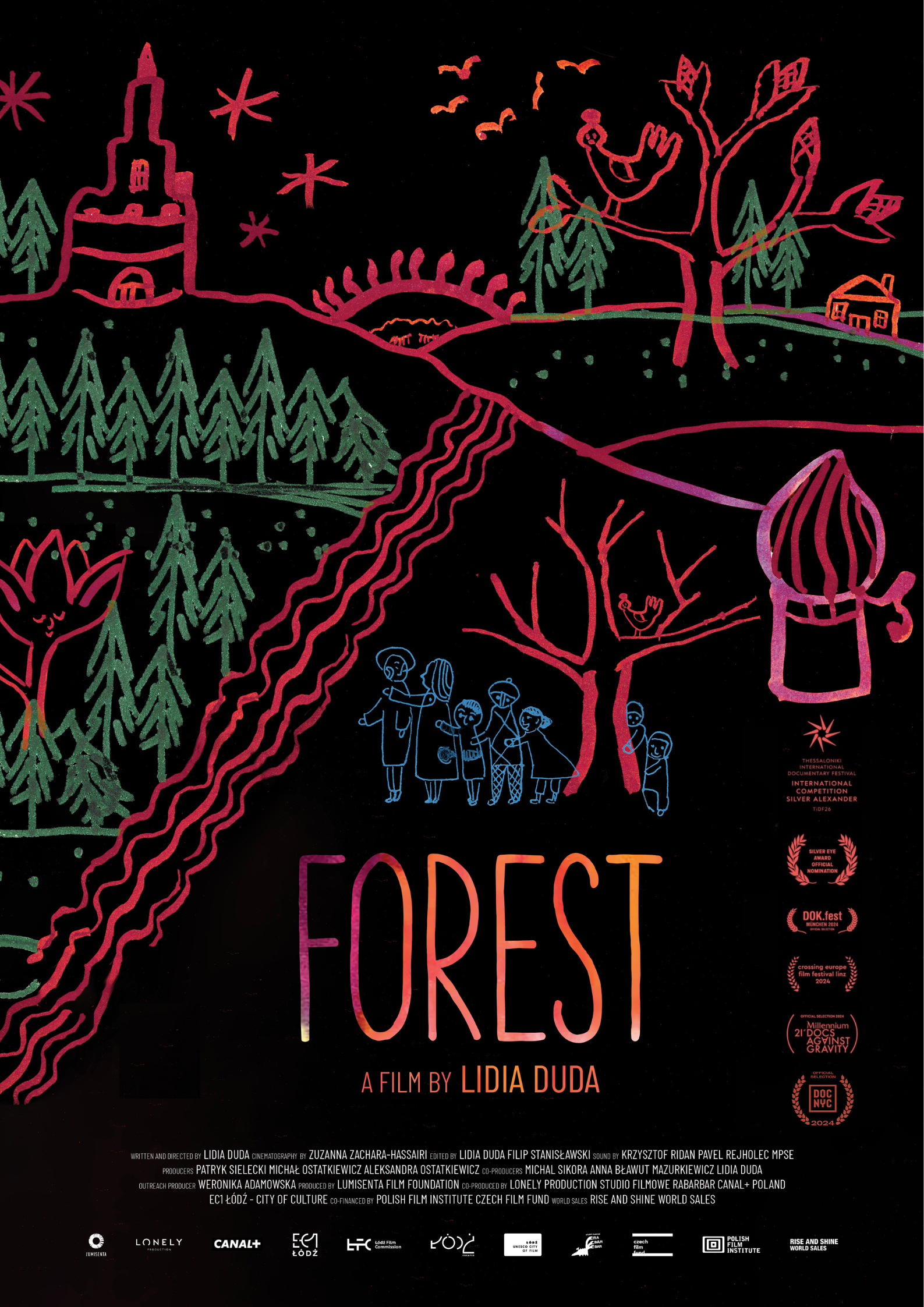Eye For Film >> Movies >> Forest (2024) Film Review
Forest
Reviewed by: Tobiasz Dunin

Although its visibility has been reduced due to Russia’s invasion of Ukraine, the crisis at the Polish-Belarusian border remains unresolved. In 2021, to pressurise the European Union, Alexander Lukashenko’s regime began directing refugees, mostly from East Africa and the Middle East, to the west of Belarus. Lured with the false promise of a safe passage to the European Union, these individuals were transported to the borders of Poland, Lithuania and Latvia. Despite promises to change the approach of their predecessors, the new Polish government, elected last year, continues to force the refugees back into the forest and towards Belarus, meaning many face getting trapped between the two countries.
In her seventh film, Lidia Duda follows a Polish family who live in a house near Poland's eastern border, in the Bialowieza Forest. Joanna and Marek have tried to create a peaceful home for their pre-teen children - Maria, Ignacy, and Franciszek. Their idyllic life is disturbed by the humanitarian crisis unfolding at the border, which impacts not only the adults, but the kids as well. The three siblings no longer play as knights and princesses, but pretend to be refugees and border guards. Risking punishment from the law enforcement, the entire family steps in to help those in need, as they leave necessities in the forest for the refugees to take.

Focused on the human perspective, Forest provides few details about the crisis at the border, especially for a documentary. The uninformed viewer might be confused about what is happening, why, and what caused it. Presented through the subjective perspective of the family, the narrative has a mysterious and saddening atmosphere, as snippets of conversations between family members show how worried and disheartened they are. Wanting to escape the modern way of living and provide their children with a peaceful life in the country, they are very moved that the world has found them even in such an isolated place. The whole situation leaves them in a dilemma as to what to do.
Thanks to the work of cinematographer Zuzanna Zachara-Hassairi, the film has astounding shots, especially the ones presenting nature. Many scenes are shot as if from hiding, from behind the trees or through the window, which creates a secretive and delicate atmosphere. Moreover, she uses a technique reminiscent of found footage, as she follows the family into the forest to leave the things, which gives the film an eerie thriller feeling that aptly builds up the tension. The sound design by Krzysztof Ridan and Pavel Rejholec captures nature perfectly, as the audience can hear many soothing noises typical for forests - birds singing or the rustle of leaves. Unfortunately, the same quality doesn’t apply to the dialogue, as it’s difficult to understand the characters most of the time, although, thanks to the subtitles, this problem shouldn’t be noticeable for a non-Polish viewer.
The crisis at the Polish-Belarusian border was already explored by another Polish filmmaker, Agnieszka Holland, in Green Border. This award-winning film sparked noticeable political turmoil, but the fact that Forest competed in the International Competition at the 26th Thessaloniki International Documentary Festival, suggests that this topic is still considered significant and worthy of making art about - the film is now travelling on the festival circuit and will play at DOC NYC. Although building up on an interesting premise, its subtlety and strong reliance on the mood of the story results in a message that is difficult to grasp. Furthermore, it's not a typical documentary, but also far from being a feature. Not committing fully either way, it feels like it's somewhere in between.
Reviewed on: 12 Nov 2024















